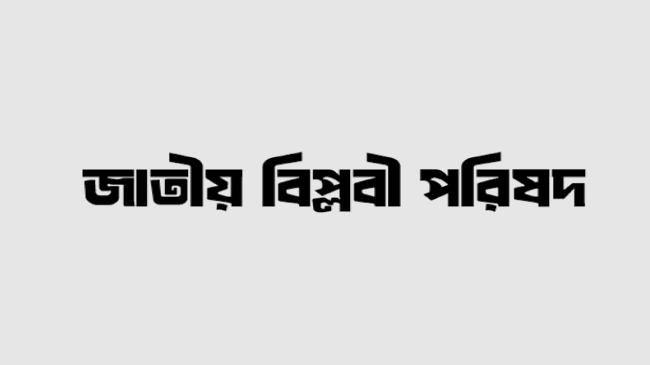The announcement by the Jatiya Biplobi Parishad (National Revolutionary Council) to join the ongoing Inqilab Moncho sit-in program in Shahbag, demanding the arrest of Shahbag Movement leader Lucky Akter and the banning of the Awami League, has added a new dimension to the political landscape. This event is not just a protest program but is also being marked as a significant turning point in the country’s political history. On Wednesday, Mo. Anisur Rahman, the political head of the Jatiya Biplobi Parishad, and Hasan Mohammad Arif, the member secretary, announced their decision in a joint statement. Their declaration highlighted the banning of fascist politics, parties, and organizations as one of their primary goals, carrying a powerful message in the country’s political context.
The Jatiya Biplobi Parishad has expressed solidarity with the demands raised in Shahbag, including the arrest of Lucky Akter, the trial of the Shapla and Pilkhana massacres, and the banning of the Awami League. This expression of solidarity is not merely a gesture of support but a symbol of their deep commitment to the ongoing movement. By declaring their firm resolve to remain in Shahbag until their demands are met, they have reflected their political commitment. This program, which has been conducted by students and citizens at Dhaka University’s Raju Sculpture for the past 28 days, aims to ban the Awami League and its allies. The organizer of this program, the Biplobi Chhatra Parishad (Revolutionary Student Council), an affiliate organization of the Jatiya Biplobi Parishad, demonstrates the political awareness of the country’s young generation through their prolonged sit-in program.
The core demands of this movement, such as the arrest of Lucky Akter, the trial of the Shapla and Pilkhana massacres, and the banning of the Awami League, are highly sensitive issues in the country’s political history. The arrest of Lucky Akter, which has created controversy, raises questions about civil rights and the freedom of political expression. The trial of the Shapla and Pilkhana massacres, which remains an unresolved issue, strengthens the demand for justice and accountability. The demand to ban the Awami League, a highly contentious issue, calls for a fundamental change in the country’s political system.
The Jatiya Biplobi Parishad’s decision has further clarified the country’s political polarization. Their move is not just a protest program but an attempt to shape the country’s political future. This movement has emerged as a powerful voice of the country’s young generation and civil society, potentially initiating new thoughts and changes in the political arena. This movement proves that civil society and the young generation are capable of playing a crucial role in the country’s political transformation.





